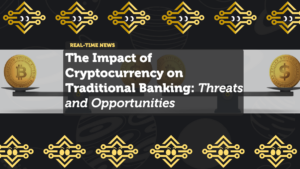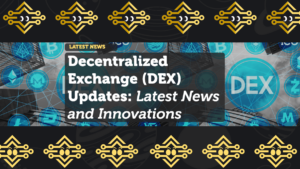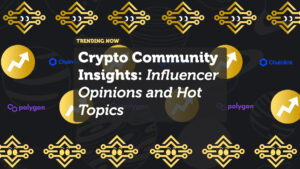
Consumer Data Revolution: An Interview with Sanjib Kalita CEO of Guppy.ai
By: Patrick Conlin
Consumer credit reporting is an albatross of bureaucratic entanglements and vexing frustrations. For anyone that’s ever applied for a mortgage, loan, or a copy of their annual credit report the various industry reporting methods that calculate a credit score can often leave the consumer having more questions than answers. Whether or not you have a great score or poor credit, the exchange of our consumer data is sold without any true transparency to the person who’s information is being targeted. These issues surrounding credit bureau reporting do not only apply to consumers, within the industry there exists disproportionate exchanges between large and small institutions as well as values in the collection of data. For example, while credit card companies have good reporting data third party bill collectors and healthcare agencies do not. Meanwhile, smaller banks and lending institutions pay more than large banks and thus assume more risk from capital losses. Enter a new company that seeks to revolutionize credit bureau reporting transparency for both institutions and consumers built on a blockchain.
The company is called Guppy and there slogan is “A Little Data Goes a Long Way.” Guppy brands itself as the next generation credit bureau built on top a blockchain that will ensure that “data for credit decision making is easily uploaded, verified, offered and used”(guppy.ai). Their platform seeks to reward both consumers and lenders in a native token for the revenues generated from credit reporting. At Tokenfest Boston 2018, I had the opportunity to interview the CEO of Guppy, Sanjib Kalita, and we talked about his platform. Mr. Kalita’s experience and institutional knowledge comes from his nine years working for CITI Group where he worked as the VP of business development and the SVP of loyalty marketing(LinkedIn). He also founded Money 20/20 which he helped build from startup to the world’s leading industry event.
Q: How will Guppy’s data sharing platform improve transparency compared to current industry standards?
A: “Guppy’s platform will improve transparency in several different ways. The first way is by enabling data owners, who we believe to be consumers as well as the account providers, like banks and lenders, to have easy visibility into who is accessing their data or would like to access their data. The second way is by enabling these same data owners to have control over how their data is used. Currently, once a bank sends data to the bureau, both they and the consumer have limited options over how the data is used. Guppy radically improves that by putting consumers and institutions in control of how their data is used and provides more options than what’s out there right now. Thirdly, as data is purchased on the platform, data owners, both consumers and banks, will earn money from their data.”
In our video interview which can viewed above, CEO Sanjib Kalita refers to his Guppy platform as a decentralized based credit bureau which monetizes consumer data. Moreover as this data can be disputed or verified by the user in real time it adds an additional sense of confidence to both lenders and banks. This is a key component of Guppy’s platform which allows the individual to have say over how their data is shared and reported. According to federal law credit bureaus only have to report to consumers once per year, and this potentially new form of reporting aides in helping to establish a more transparent process. Another key issue we discussed in our interview was regarding cybersecurity.
In 2017 Equifax, one of only three credit agencies in the United States, was hacked. It was one of the largest data breaches to date compromising as many as 145.5 million consumers(GAO report) or roughly half the country. One of the largest benefits of a decentralized blockchain network is that the information contained within the ledgers is not located in an individual server, its contents are dispersed among a network making it much more difficult for the data to be compromised. Of the large scale hacks that have headlined news articles throughout the previous months the majority of targets have been centralized exchanges entrusted by consumers with their private keys. Centralized servers are currently the industry standard in protecting sensitive consumer data, and as the economy continues to trend toward mobile applications and payment methods recent attacks such as Equifax have exposed the vulnerabilities within our current system. These attacks are directly related to fraud and identity theft. According the Bureau of Justice Statistics 17.6 million U.S. residents 16 or older, or about 7 percent, were victims of at least one incident of identity theft in 2014(www.bjs.gov). For those whom have been a victim of identity theft the damage is often done long after it has been discovered making it harder to dispute and resolve fraudulent charges. Another form of fraud is synthetic identity theft which is employed by hackers whom stitch and piece together information comprised from multiple persons identities. Guppy’s platform seeks to mitigate issues of fraud and gaps in agency reporting by allowing users to view and control how their data is sold and used which is a departure from current reporting standards.
Q How is a consumer report disclosed to banking institutions and third party companies?
A “A consumer’s credit report is disclosed to banks or to third party companies in two ways: hard pulls and soft pulls. A hard pull is when a consumer wants to apply for a loan or service and agrees to have their credit report pulled. A soft pull doesn’t require consumer permission and is most often used when banks want to figure out who to market to. Another difference is that the hard pull returns their full credit history whereas the soft pull has summary information rather than full history. When you receive communications saying that you’ve been ‘pre-approved’ for something, or when you see your credit score through your bank or a service like Credit Karma or Credit Sesame, this is from a soft pull. But when you decide to submit an application to get a credit card, loan, etc., this will cause a hard pull.”
The potential benefit to users within the ecosystem is the ability to both monetize and track their credit in real time. There are very few among us whom have perfect credit. Student loan debt is 1.5 trillion second only to mortgage debts and now surpasses credit and auto loans according to Forbes.
Q How do the big three credit reporting agencies Experian, Equifax, and TransUnion report delinquent student loan payments?
A “I’d break out how delinquent credit data gets reported into two major buckets. First, is the raw data itself, which includes the date the loan was originated, the balance, the date last reported, the company reporting, and the payment history. I’d break down the payment history into 3 major groups: On-Time/Good Standing, Delinquent, Default. It is the lenders’ responsibility to send this data to the bureaus, and the bureaus’ responsibility to clean and accurately report the data. Private loan servicers will typically report a loan as delinquent after it is 30 days late whereas Federal servicers typically report after a payment is 90 days late. Data is updated on a monthly basis and your actual credit report will be appended to the history of the loan via a character. For example, it might say ‘1’ if the account is current or good status, but might say ‘2’ if the account is 30 days late. The second way that delinquent student loan data gets reported is in a summarized score. This 3-digit score is used for making general decisions about who to offer services to and at what rates. In this case, the student loan data is mixed in with other history, like auto loans, credit cards, etc. Because students are just starting out their lives, they usually don’t have a whole lot of other financial history to spread out any delinquent history, so it makes it even harder for them to be viewed as a good consumer. “
Guppy’s eventual success as a decentralized data reporting agency will hinge upon its adoption by traditional lenders and institutions. Payments dispersed as dividends to account holders in a native token are dependent upon the purchase of cleaner more verified consumer data by banks and third parties. Our data is shared for the purpose of marketing. Here is where the gaps exists and are disproportionate amongst small and large firms that have the financial resources to track it and monitor consumer habits. By improving the transparency between consumers and account providers the data that firms rely on for soft pulls will be greatly improved because consumers can verify financial transactions for lenders. Meanwhile for the first time consumers can have control over who purchases and views their data where current transactions happen without our knowledge or permission. Indeed, a little data goes a long way.
Reviews
User Score
Rate This
Sharing
Tags
Leave your comment
You must be logged in to post a comment.















Well written article – great work!